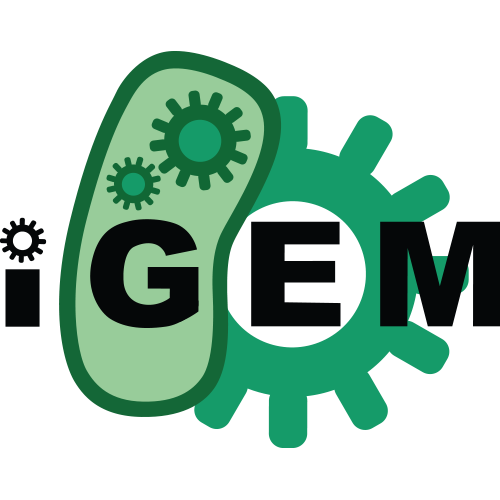Source:
Generated By: https://synbiohub.org/public/igem/igem2sbol/1
Created by: Martyna Sroka, Ana-Maria Cujba
Date created: 2014-10-01 11:00:00
Date modified: 2015-05-08 01:10:02
Ag43+FLAG+MCS(-)beta-hairpins
| Types | DnaRegion |
| Roles | CDS Coding |
| Sequences | BBa_K1352012_sequence (Version 1) |
Description
Antigen 43 (sometimes called Ag43 or fluffing protein) is a phase-variable outer membrane protein encoded by flu gene. It is native to E.Coli K12 strain and is usually expressed at about 50, 000 copies/cell. Ag34 precursor is 1039 amino acids long and subsequently becomes cleaved into alpha and beta chains (499 and 488 amino acids long respectively). The beta subunit forms a β-barrel pore via which alpha-subunit translocates to the cell surface, and with which it remains non-covalently joined. The surface alpha chain can be released by a brief heat treatment at approx. 60oC.Ag43 is an autotransporter protein, therefore it possesses all information necessary for translocation to the cell surface in its coding sequence.
Ag43 mediates autoaggregation, via a velcro-like mechanism (Heras et. al., 2014), and plays a role in E.coli biofilm formation.
Interestingly, the alpha subunit is able to express foreign peptide sequences on E.coli cell surface if inserted just in front of codon 148 (Kj??rgaard et. al., 2002).
This BioBrick is a modified version of the Bba_K1352011 BioBrick. It is composed of an Ag43 coding sequence with an in-frame FLAG epitope tag flanked by BglII and HindIII multiple cloning sites inserted within the alpha-subunit in front of codon 148 of Ag43. Expression of Ag43 is under the control of the pBAD promoter; it includes a ribosome binding site as well as two transcriptional terminators. Two 17 amino acids long beta-hairpins were removed from the Ag43 autotransporter sequence in order to remove aggregation properties.
Structure of the BioBrick was designed to allow easy insertion of foreign protein sequences of choice at codon 148 with a simple restriction digest with BglII and HindIII followed by ligation when autoaggregation is undesirable.
Potential uses of this BioBrick include surface display of foreign peptide sequences, negative control for E.coli aggregation tests as well as synthetic vaccines production.
Notes
Maintenance of the in-frame ORFSource
PCR amplified from BioBrick Bba_K1352001; beta-hairpins were removed via In-Fusion (Clonetech).| Sequence Annotation | Location | Component / Role(s) |
| Ag43+FLAG+MCS(-)beta-hairpins BglII+FLAG+HindIII | 1,3054 442,477 | feature/cds CDS feature/misc sequence_feature |
